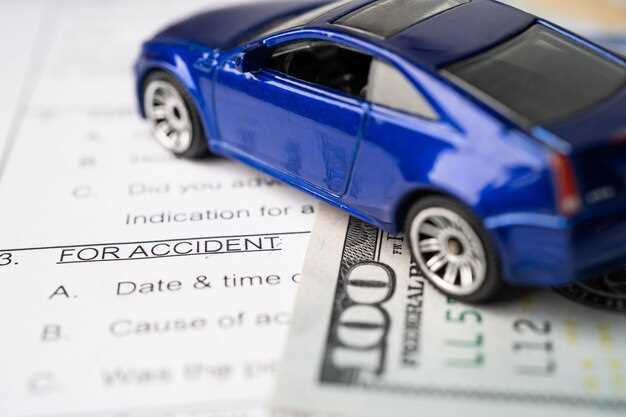
For many car enthusiasts and owners of luxury vehicles, depreciation can be a significant concern. The value of luxury cars tends to decrease faster compared to their more economical counterparts, making it imperative for owners to understand strategies to minimize this loss. Luxury vehicles often represent a substantial financial investment, and protecting that investment is essential for any discerning buyer.
Understanding the factors that contribute to depreciation is crucial for maintaining the value of luxury cars over time. From mileage and maintenance history to market trends and the brand’s reputation, numerous elements can influence how much a car will be worth several years down the line. By making informed decisions and adopting proactive measures, owners can effectively safeguard their cars’ value and enjoy the benefits of luxury driving for longer periods.
This article delves into practical tips and insights aimed at minimizing depreciation loss in luxury vehicles. By exploring upkeep methods, market strategies, and resale considerations, car owners can significantly enhance their chances of retaining value, turning their vehicle from a mere mode of transport into a wise investment.
Choosing the Right Luxury Vehicle for Long-Term Value

When investing in a luxury vehicle, understanding factors that influence depreciation is crucial for ensuring long-term value. Selecting the right model can significantly mitigate depreciation losses over time.
Brand Reputation: Some luxury brands are renowned for their durability and performance, which tend to retain value better than others. Brands like Mercedes-Benz, BMW, and Porsche are often regarded as safer investments due to their strong market presence and high demand.
Model Popularity: Opt for models that have a well-established following. Limited edition vehicles or models with specific performance packages tend to depreciate less. Buyers are often willing to pay a premium for these cars, contributing to their better value retention.
Condition and Maintenance: A vehicle that is meticulously maintained not only ensures a better driving experience but also helps in curbing depreciation. Keeping up with scheduled maintenance and preserving the vehicle’s aesthetics can significantly enhance resale value.
Market Trends: Staying informed about market demands can aid in making a wise choice. Electric luxury vehicles, for instance, are increasingly becoming desirable due to growing environmental awareness, thereby potentially lowering their depreciation rates compared to traditional petrol engines.
Engine Type: Vehicles with larger engines often face higher depreciation due to rising fuel costs and stricter emissions regulations. Opting for a luxury vehicle with a smaller, more fuel-efficient engine may result in better long-term value and lower overall costs.
Ultimately, a thoughtful approach to selecting a luxury vehicle involves anticipating future trends, understanding brand dynamics, and maintaining the vehicle in pristine condition. This ensures a reduced depreciation loss and maximizes long-term satisfaction and return on investment.
Maintenance Practices to Preserve Luxury Car Worth
Owning a luxury car is a significant investment, and preserving its value is crucial for minimizing depreciation. Implementing effective maintenance practices can help maintain the car’s aesthetics, performance, and overall worth.
Regular Servicing: Adhering to a strict service schedule recommended by the manufacturer is vital. Regular oil changes, filter replacements, and fluid checks prevent wear and tear, ensuring the vehicle remains in optimal condition. Attention to such details can significantly decrease long-term depreciation.
Quality Detailing: Regular washing and detailing help preserve the exterior and interior finishes of luxury vehicles. Using high-quality products designed for luxury cars protects the paint and leather, maintaining a pristine appearance that appeals to potential buyers.
Storage Conditions: Storing a luxury car properly can dramatically reduce wear. Keeping it in a climate-controlled garage protects it from extreme temperatures and humidity, which can lead to rust and deterioration. Investing in a quality car cover can also shield it from dust and debris when not in use.
Tire Maintenance: Properly maintained tires not only enhance safety but also contribute to the car’s overall performance. Regularly checking tire pressure, rotation, and alignment helps reduce uneven wear and improves handling, both critical for luxury vehicles.
Documentation: Keeping detailed records of all maintenance and repairs provides evidence of care and can reassure future buyers. A well-documented history reflects responsibility and can significantly affect resale value, minimizing any depreciation concerns.
Upgrading Technologies: Staying current with technological advancements can also add value. Integrating updated infotainment systems or safety features keeps the vehicle modern and desirable, counteracting depreciation rates associated with older models.
By adopting these maintenance practices, luxury car owners can ensure their vehicle retains its worth. Consistent care and attention reduce depreciation, protecting this valuable investment for years to come.
Timing Your Sale to Maximize Luxury Car Resale Price

When it comes to luxury cars, timing your sale is crucial in order to preserve and enhance the vehicle’s value. The resale market is influenced by seasonal demand, economic conditions, and consumer trends, making it essential to choose the right moment to sell.
One key factor to consider is seasonal fluctuations. For instance, selling a luxury convertible during spring or summer can significantly boost its resale price, as demand typically rises during warmer months. Conversely, selling a high-performance car in winter might yield lower offers, as fewer buyers are willing to invest in a luxury vehicle during colder seasons.
Additionally, keeping an eye on economic indicators can help you gauge the optimal time for your sale. Luxury car sales often correlate with consumer confidence and disposable income levels. When the economy is thriving, buyers are more likely to spend money on high-end vehicles, resulting in better resale values.
Moreover, it is important to consider the specific model’s lifecycle. Something as minor as the release of a new version can affect the perceived value of your luxury car. If a new model is set to debut, selling just before this launch may yield a higher price, while selling shortly after may lead to depreciation as demand shifts toward the latest offering.
Finally, be proactive in assessing demand within niche markets. Certain luxury brands or models may have dedicated enthusiasts willing to pay a premium at specific times, reflecting their passion for the brand. Engaging with online forums and communities can provide insights into when to list your vehicle for maximum exposure and pricing potential.



